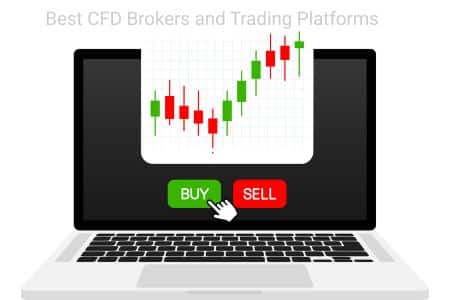Discover the Best CFD Trading Markets for Enhanced Profitability

Best CFD Trading Markets: Unlocking Your Potential in Financial Trading
The world of CFD (Contracts for Difference) trading is vast and filled with opportunities. Among the myriad of markets available, some stand out due to their volatility, liquidity, and potential for profit. In this article, we will delve into the best CFD trading markets that traders should consider to enhance their investment portfolio. For further insights on choosing the right broker, visit best cfd trading markets bestbrokercfd.com.
Understanding CFD Trading
CFD trading allows investors to speculate on asset price movements without owning the underlying asset. This derivative trading enables traders to go long or short, providing immense flexibility. However, with this flexibility comes risk, and it is crucial for traders to understand the markets they are involved in.
Key Characteristics of the Best CFD Trading Markets
The best CFD trading markets typically exhibit several key characteristics:
- High Liquidity: Markets with high trading volumes allow for easier entry and exit points.
- Volatility: Price fluctuations enable traders to capitalize on rapid movements.
- Diverse Options: The availability of various instruments increases trading opportunities.
- Accessibility: Markets that are easily accessible can be traded at any time, ideal for those who may not be full-time traders.
The Best CFD Trading Markets
Here are some of the best CFD trading markets to consider:
1. Forex Market
The Forex market is the largest and most liquid market in the world. With a daily trading volume exceeding $6 trillion, it offers numerous opportunities for traders. Major currency pairs like EUR/USD and USD/JPY remain popular among CFD traders due to their volatility and predictable trends.
2. Stock Market
Stock CFDs allow traders to speculate on the price movements of individual companies. Markets such as NASDAQ and NYSE are among the most sought-after, providing access to well-established companies like Apple, Amazon, and Tesla. The ability to trade on margins amplifies potential profits but also increases the risks involved.
3. Commodity Market
Trading commodities through CFDs, such as gold, oil, and agricultural products, can provide an excellent hedge against inflation. Gold, in particular, has been a traditional safe-haven asset, while oil continues to be a barometer of global economic health. The commodity market is characterized by significant price movements, making it highly attractive for day traders.
4. Index Market

CFD trading on indices, such as the S&P 500, FTSE 100, and DAX 30, allows traders to speculate on the overall performance of a group of stocks rather than individual companies. This diversification offers a profitable approach while minimizing risks associated with single stock volatility.
5. Cryptocurrency Market
The rising popularity of cryptocurrencies has led to the development of CFD trading on various digital currencies like Bitcoin, Ethereum, and Ripple. This market is known for its extreme volatility, making it an appealing choice for speculative traders seeking high returns.
Strategies for Trading CFDS in Different Markets
When trading CFDs in different markets, employing effective strategies is paramount. Here are a few strategies to consider:
1. Scalping
Scalping involves making numerous trades to profit from minor price fluctuations. This strategy works well in liquid markets like Forex, where traders can take advantage of small price movements.
2. Day Trading
Day trading entails opening and closing trades within the same day, leveraging market volatility. It is often used in stock and commodity markets, where traders analyze intraday price movements.
3. Swing Trading
For those who prefer a longer time frame, swing trading is a strategy that involves holding positions for several days or weeks to capitalize on expected upward or downward market shifts. This method can be particularly effective in volatile markets like cryptocurrencies.
Choosing the Right CFD Broker
Selecting the right CFD broker is crucial for successful trading. Consider the following factors:
- Regulation: Ensure the broker is regulated by a reputable authority.
- Trading Platform: A user-friendly trading platform can significantly enhance your trading experience.
- Fees and Spreads: Compare the trading fees and spreads among different brokers; lower costs can lead to higher profitability.
- Customer Support: Efficient customer service is essential for resolving any issues that may arise during trading.
Conclusion
In conclusion, understanding the best CFD trading markets is fundamental for any trader aiming to maximize their success. With an array of markets from Forex to cryptocurrencies, there is no shortage of opportunities for those willing to learn and adopt effective trading strategies. As you embark on your trading journey, ensure that you leverage the resources available, such as bestbrokercfd.com, to make informed decisions. Happy trading!
